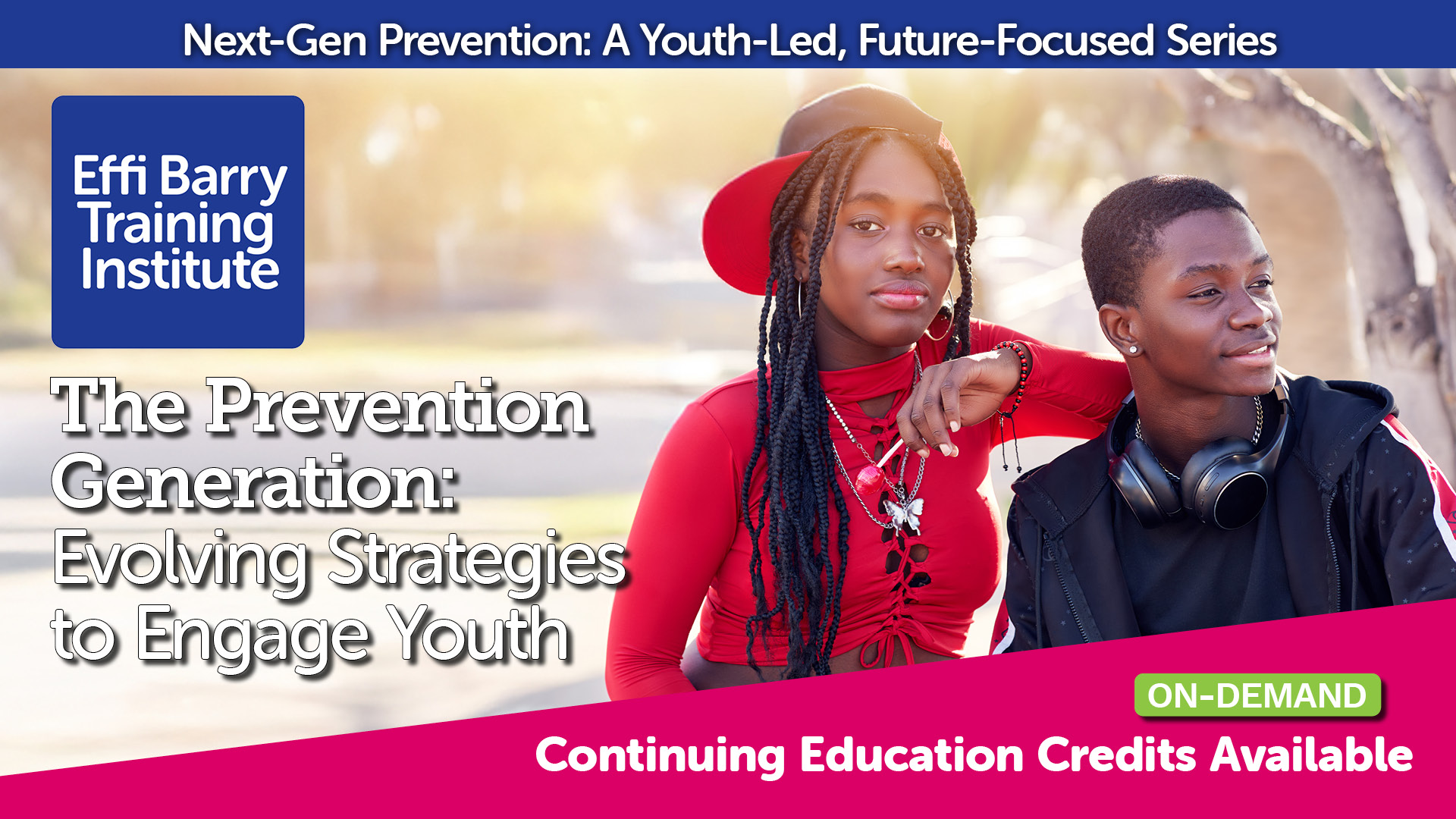
The Prevention Generation: Evolving Strategies to Engage Youth
November 18, 2025The “The Prevention Generation: Evolving Strategies to Engage Youth” webinar is designed to empower professionals to take an active role in engaging youth in HIV prevention. “The Prevention Generation” will discuss innovative and effective engagement strategies, share real-world experiences from youth-focused professionals, and promote actionable steps to help keep the next generation engaged in reducing the spread of HIV.
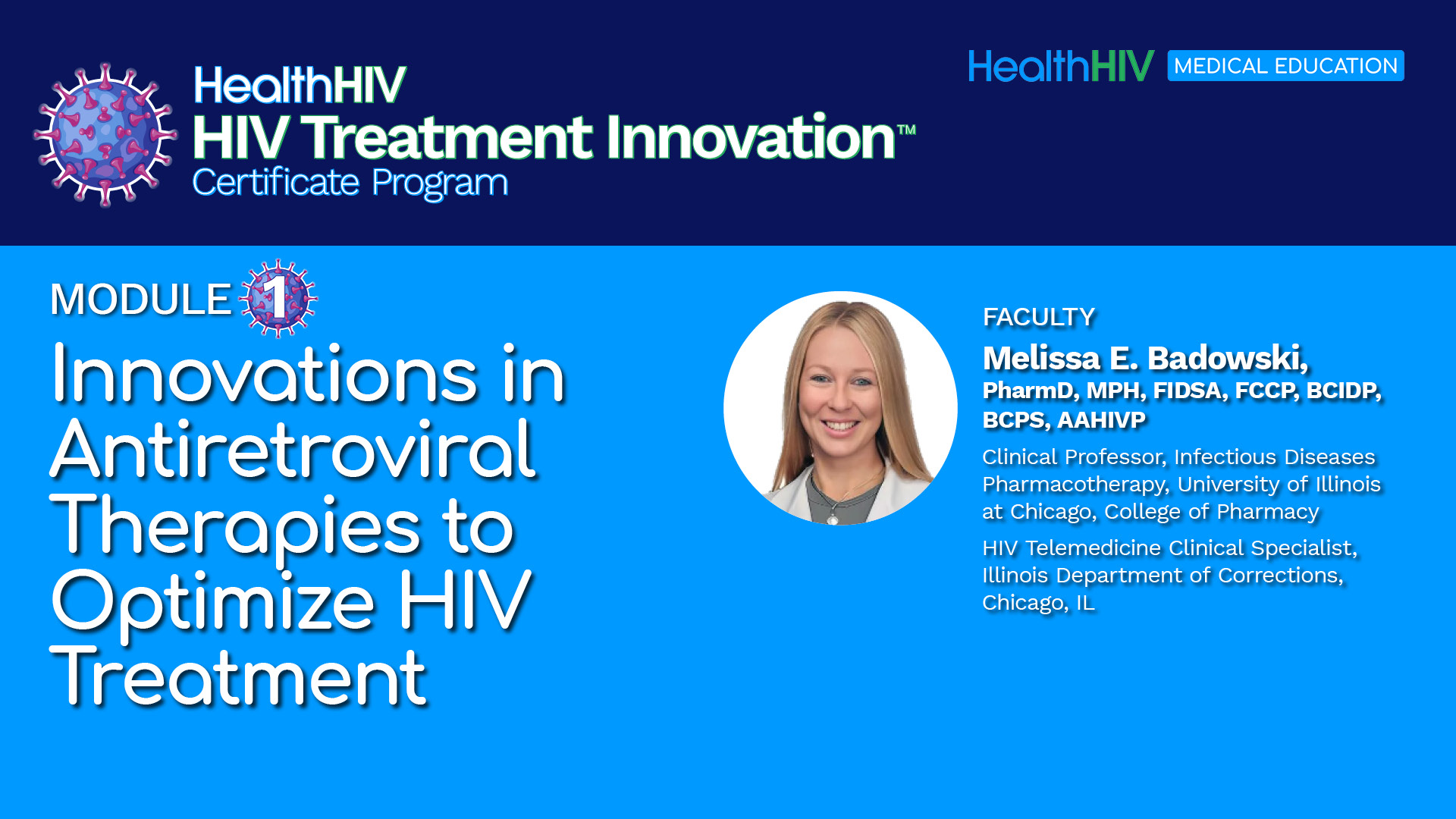
HIV Treatment Innovation Module 1: Innovations in Antiretroviral Therapies to Optimize HIV Treatment
October 27, 2025This module provides an update on recommended and investigational ARV therapies for optimal HIV care and treatment in HIV care, primary care, and general medicine.
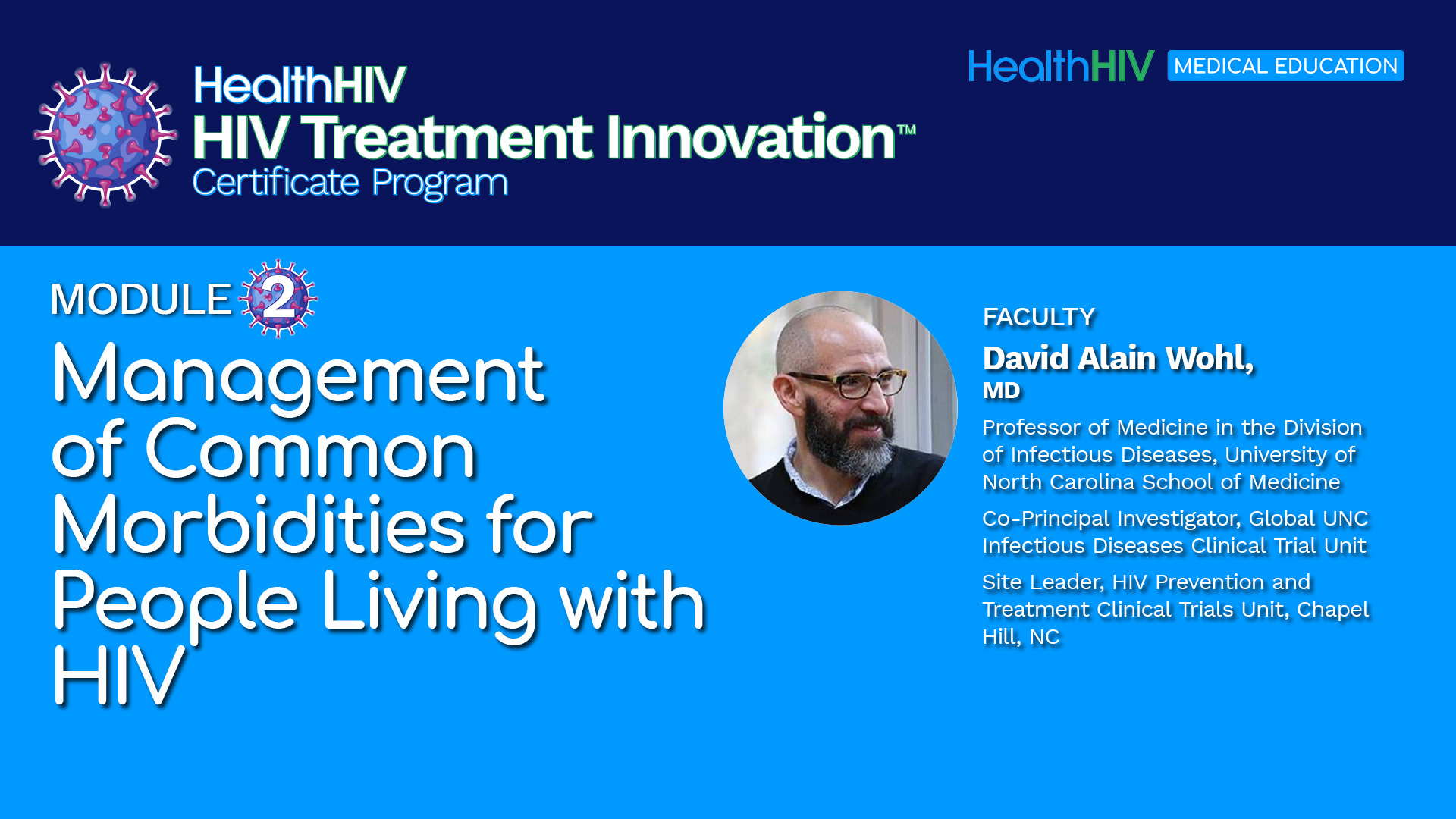
HIV Treatment Innovation Module 2: Management of Common Comorbidities for People Living with HIV
September 30, 2025This module provides considerations for managing and preventing common comorbidities, co-infections and opportunistic infections among PWH.
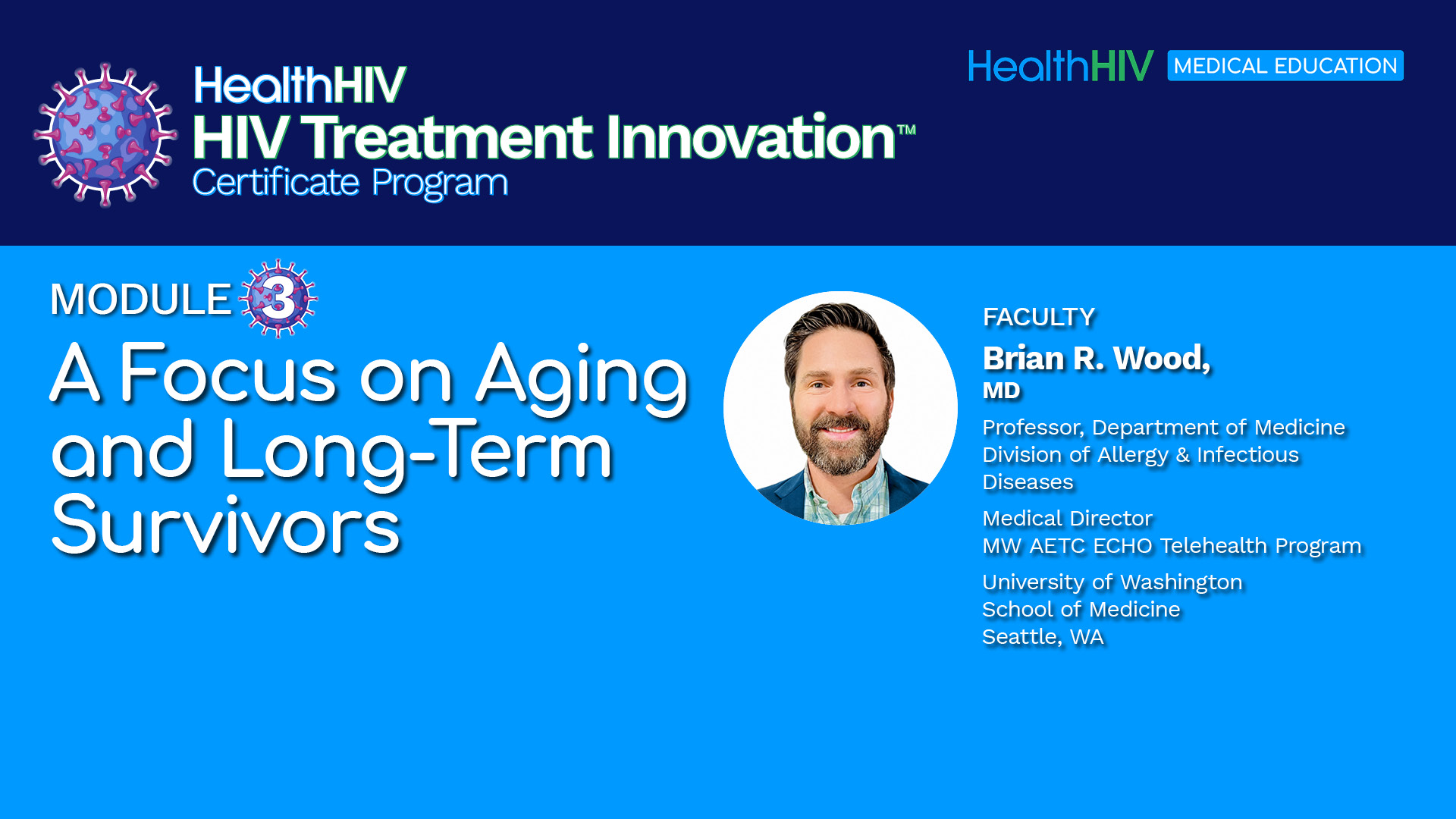
HIV Treatment Innovation Module 3: A Focus on Aging and Long-Term Survivors
This module provides considerations for managing HIV care among older adults and long-term HIV survivors.
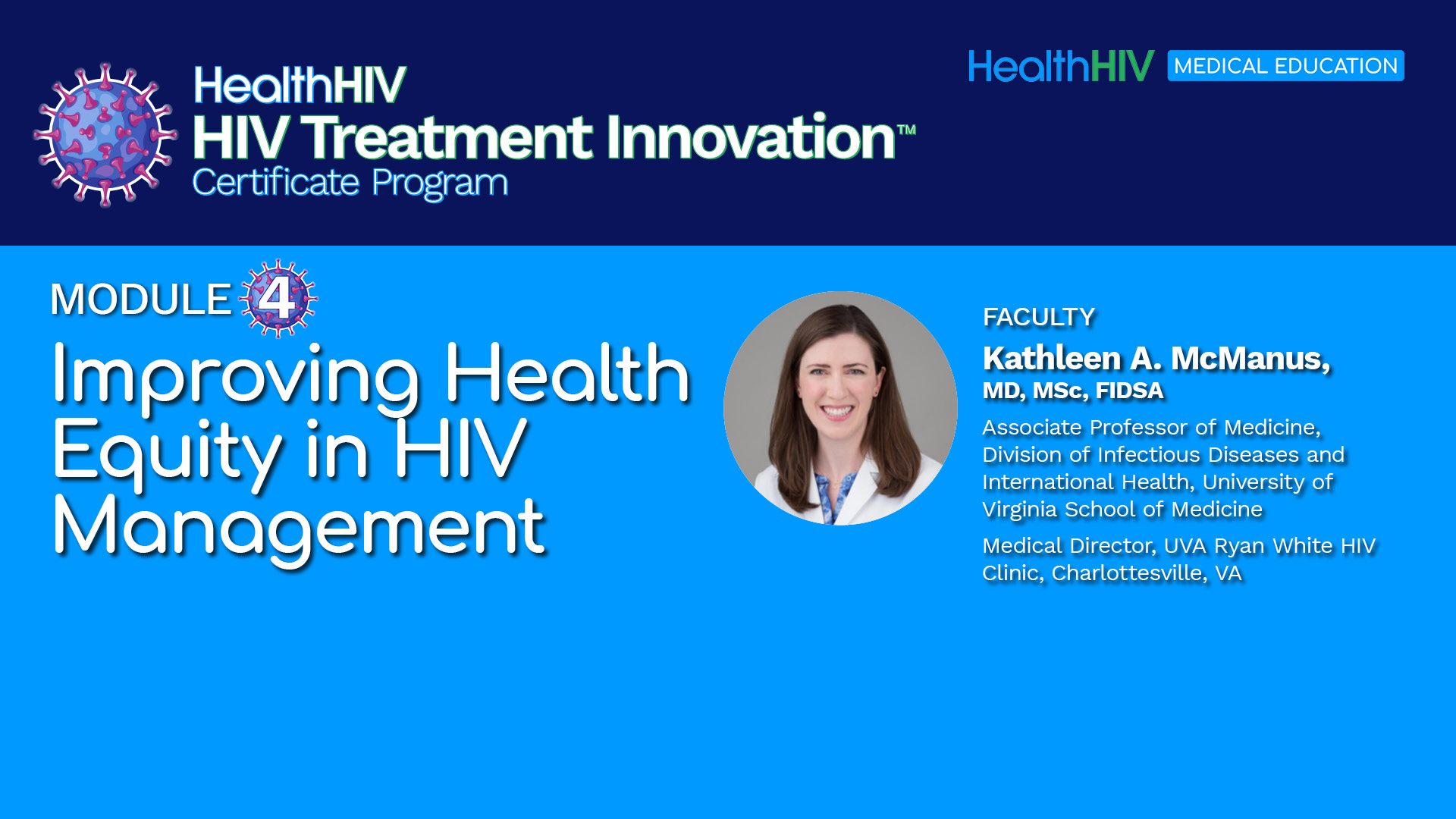
HIV Treatment Innovation Module 4: Improving Health Equity in HIV Management
This module provides evidence-based HIV treatment optimization strategies for delivering quality HIV care among key populations.
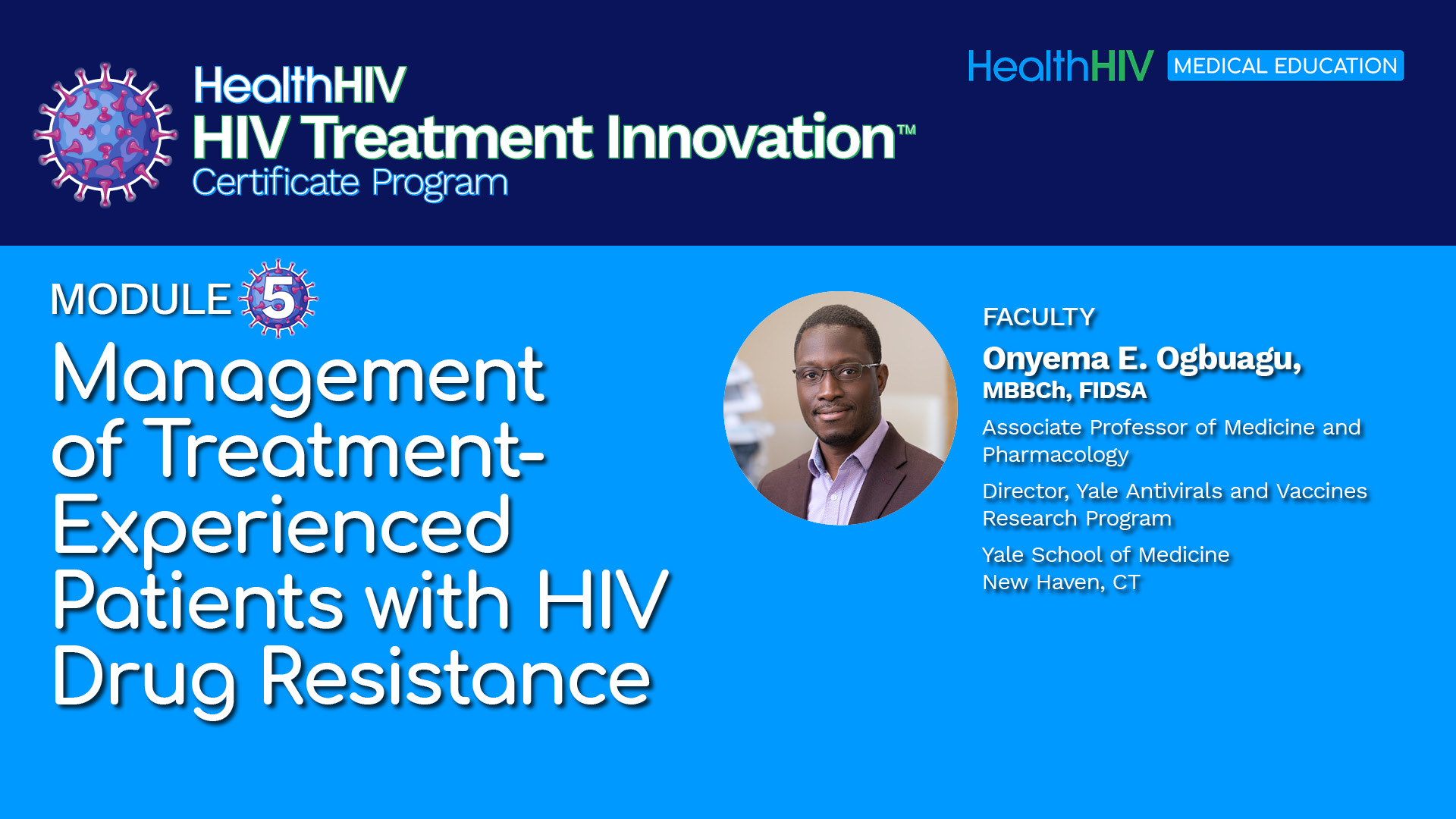
HIV Treatment Innovation Module 5: Management of Treatment-Experienced Patients with HIV Drug Resistance
This module provides information on the latest strategies for managing treatment of patients with HIV drug resistance.
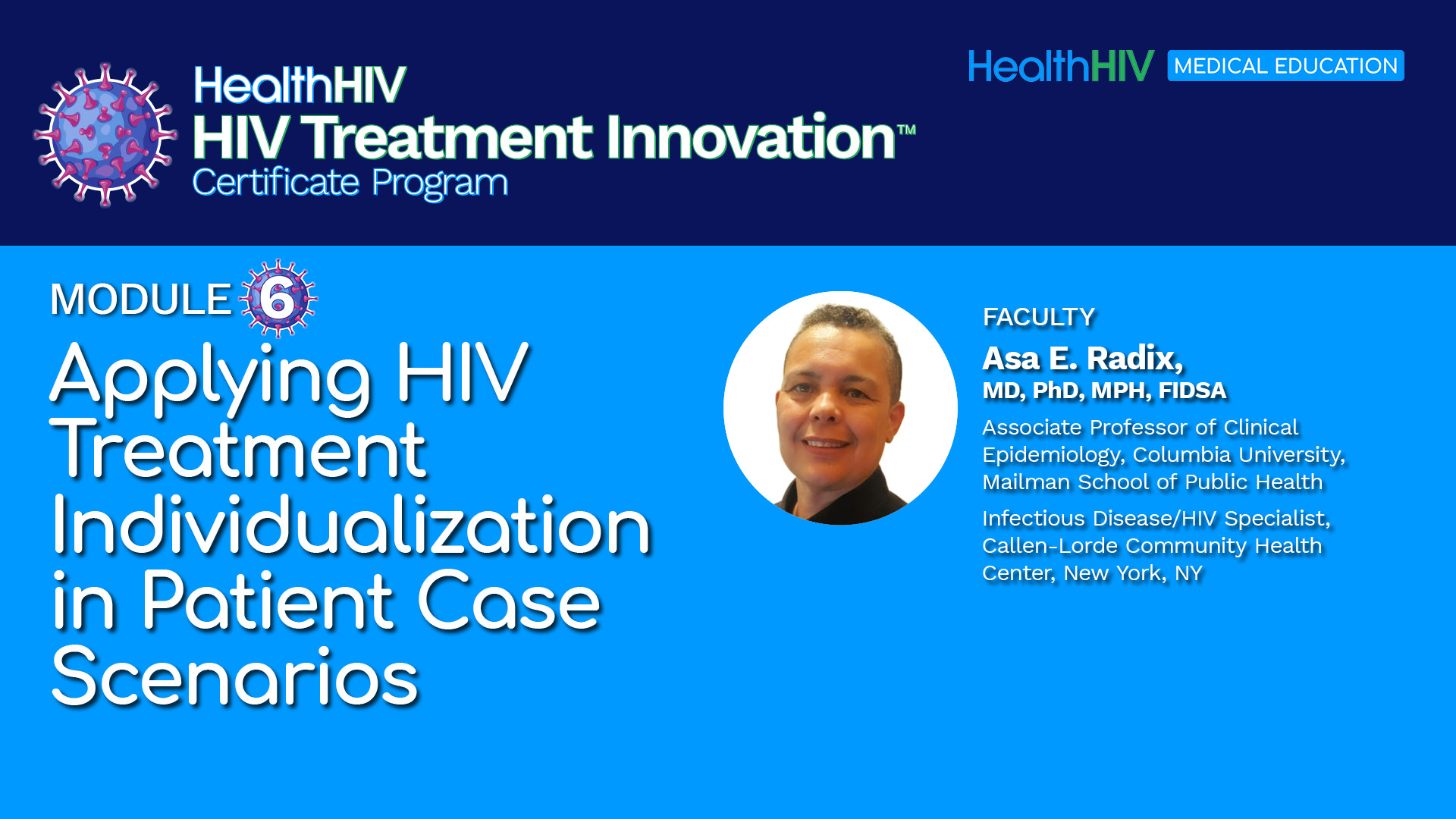
HIV Treatment Innovation Module 6: Applying HIV Treatment Individualization in Patient Case Scenarios
This module offers comprehensive patient cases that require learners to apply knowledge from Modules 1-5 in case-based scenarios.
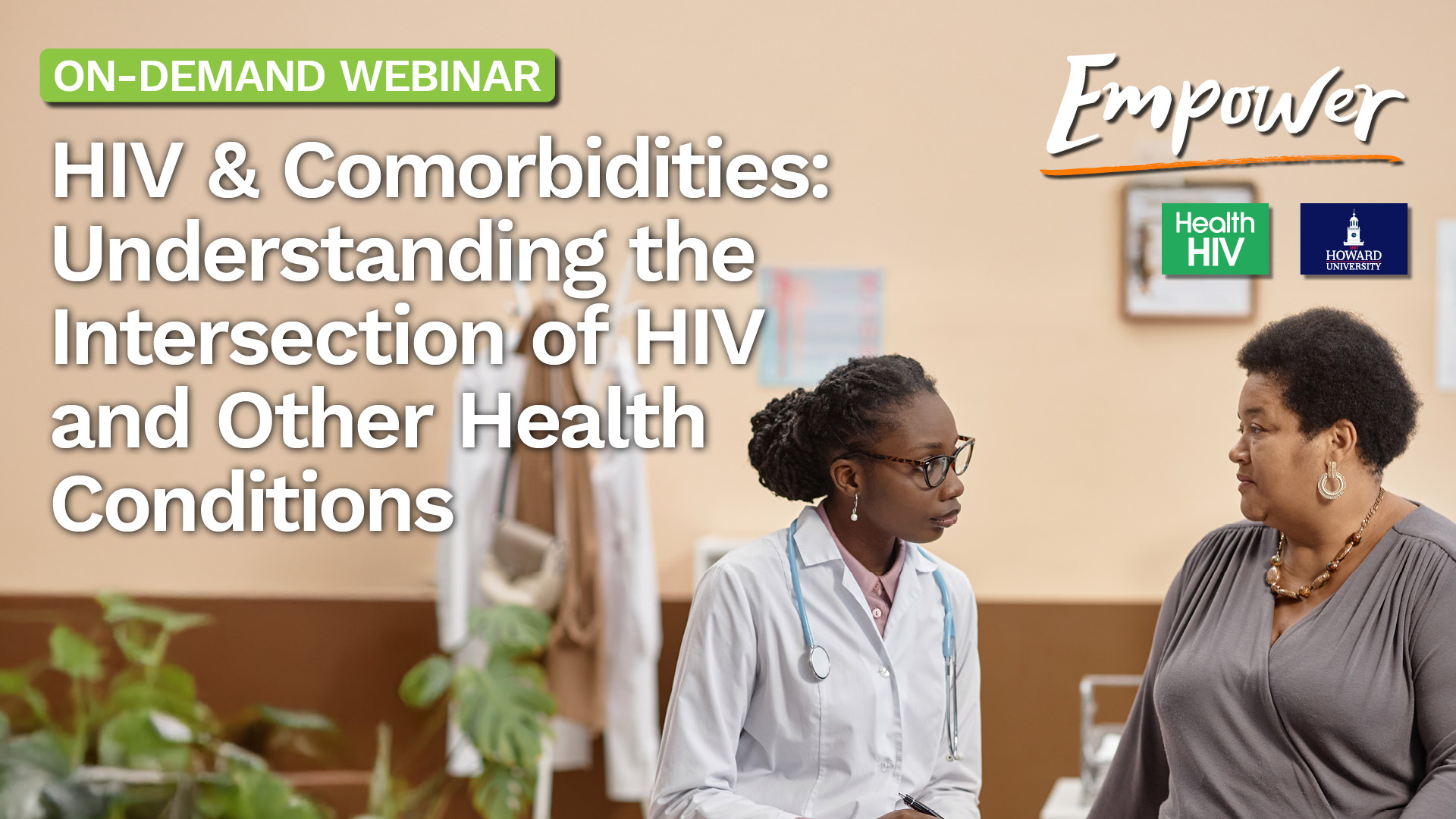
HIV & Comorbidities: Understanding the Intersection of HIV and Other Health Conditions
September 29, 2025This webinar examines the impact of co-morbidities such as diabetes, cardiovascular disease, mental health disorders, and hepatitis on individuals living with HIV. Experts will discuss how these conditions intersect with HIV and influence treatment and health outcomes.
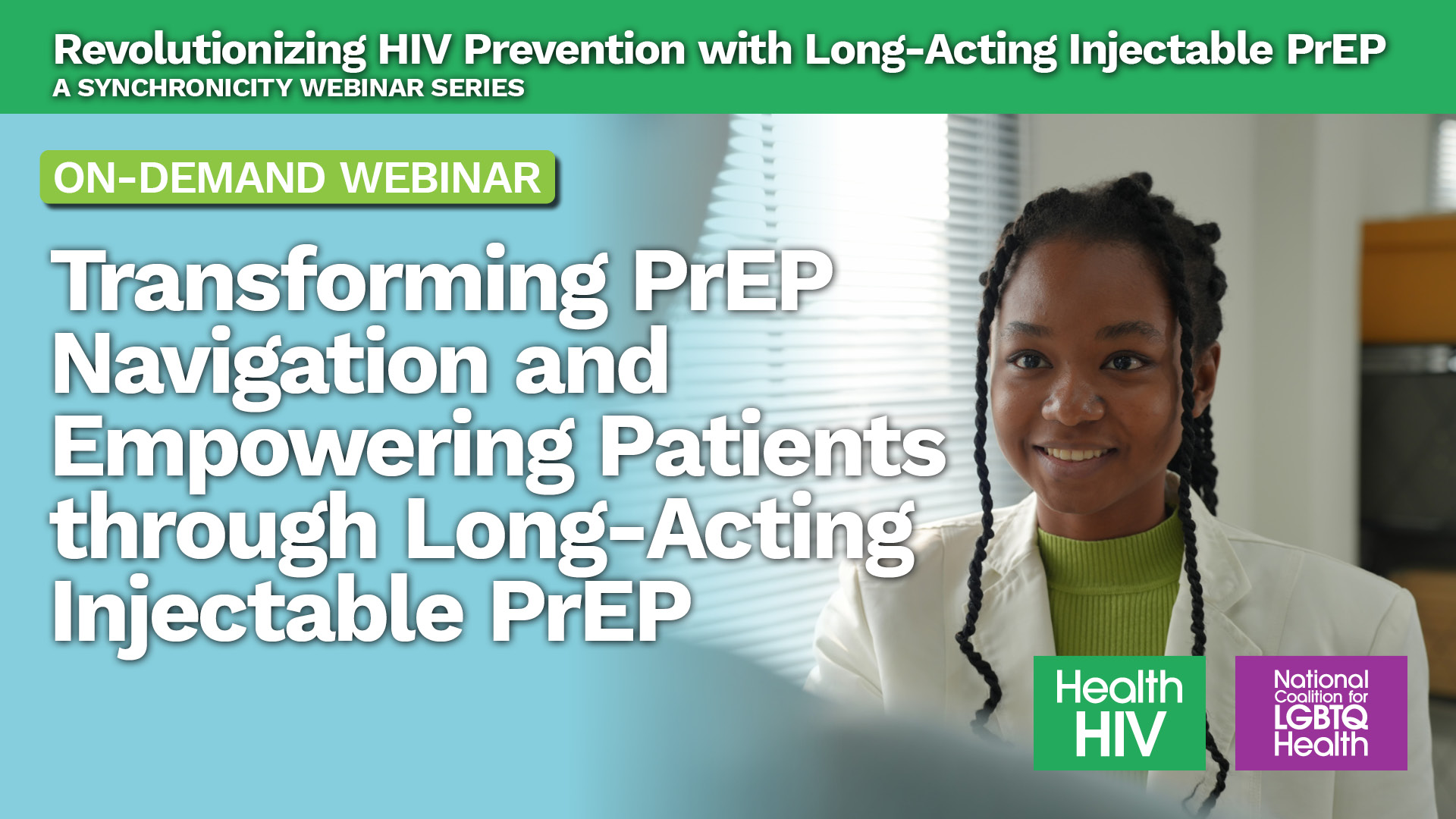
Transforming PrEP Navigation and Empowering Patients through Long-acting Injectable PrEP
September 18, 2025This webinar covers patient navigation touchpoints along the PrEP continuum for injectable lenacapavir, patient education strategies, expanding the capacity of PrEP navigation staff to implement injectable PrEP, and future opportunities for expanded implementation in mobile health settings.
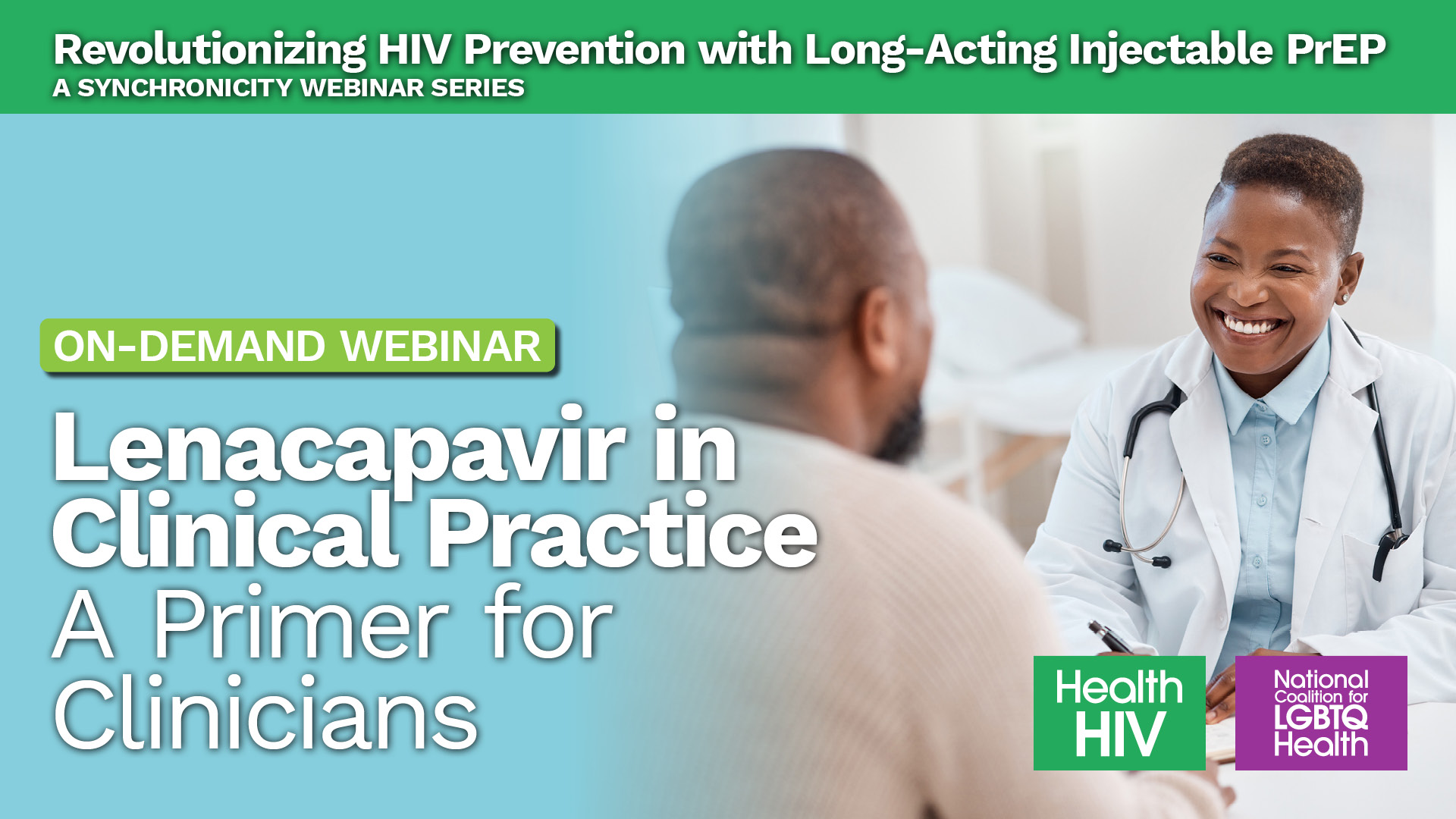
Lenacapavir in Clinical Practice – A Primer for Clinicians
In the first webinar of the series, faculty – including principal investigators from the PURPOSE trials – review clinical data and delve into opportunities and challenges for the real-world implementation of lenacapavir as PrEP.
This webinar covers medication administration, managing side effects, potential drug interactions, and transitioning patients on or off lenacapavir as PrEP.
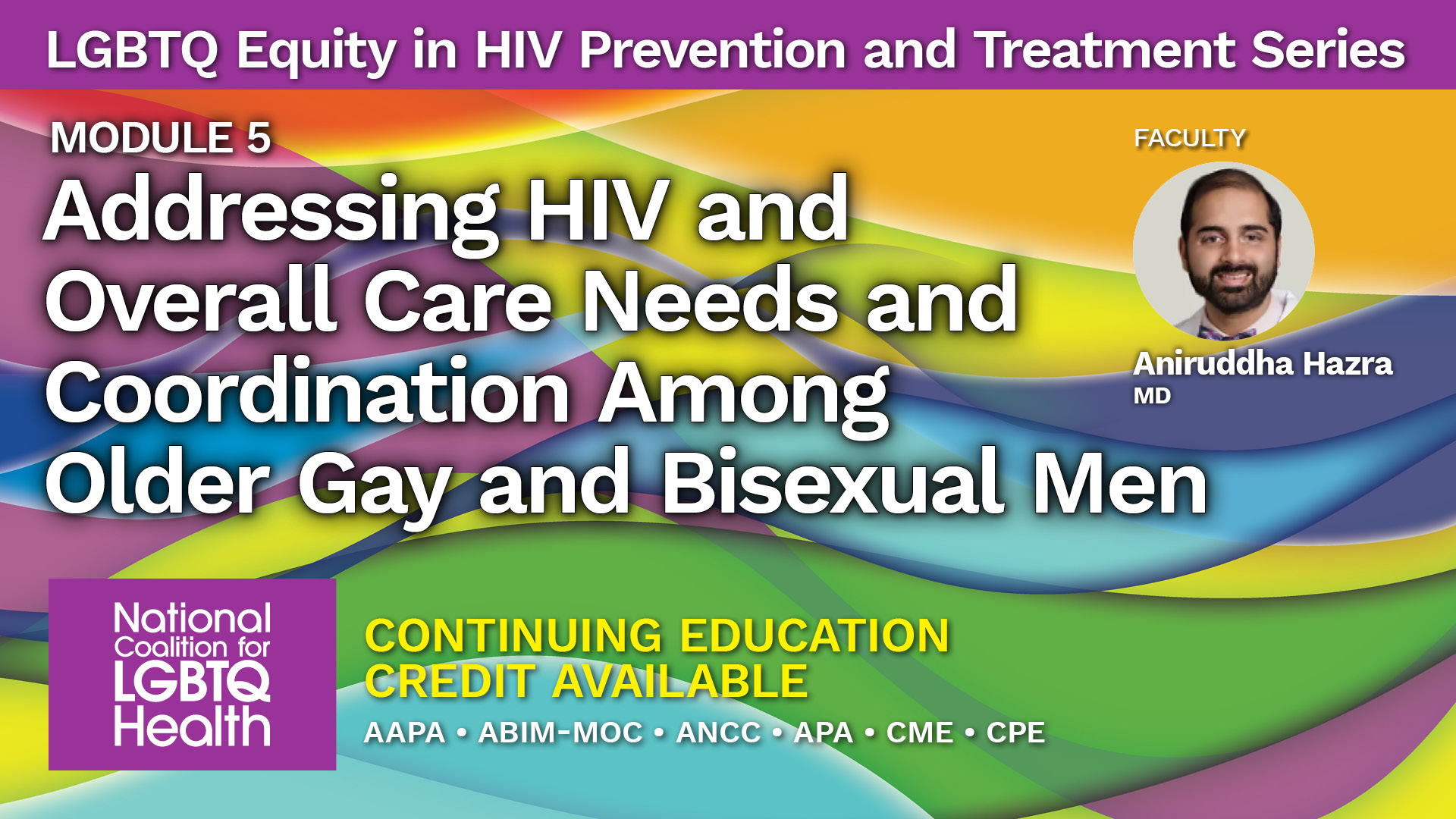
Addressing HIV and Overall Care Needs and Coordination Among Older Gay and Bisexual Men
August 15, 2025Join Aniruddha Hazra, MD, as he examines the intersection of aging, HIV, and broader health needs for older gay and bisexual men, with a focus on care coordination and long-term wellness. Additionally, Dr. Hazra will also provide critical insights into managing comorbidities, addressing social and mental health challenges, and strengthening interdisciplinary approaches to ensure holistic, affirming care for aging gay and bisexual men living with or at risk for HIV.
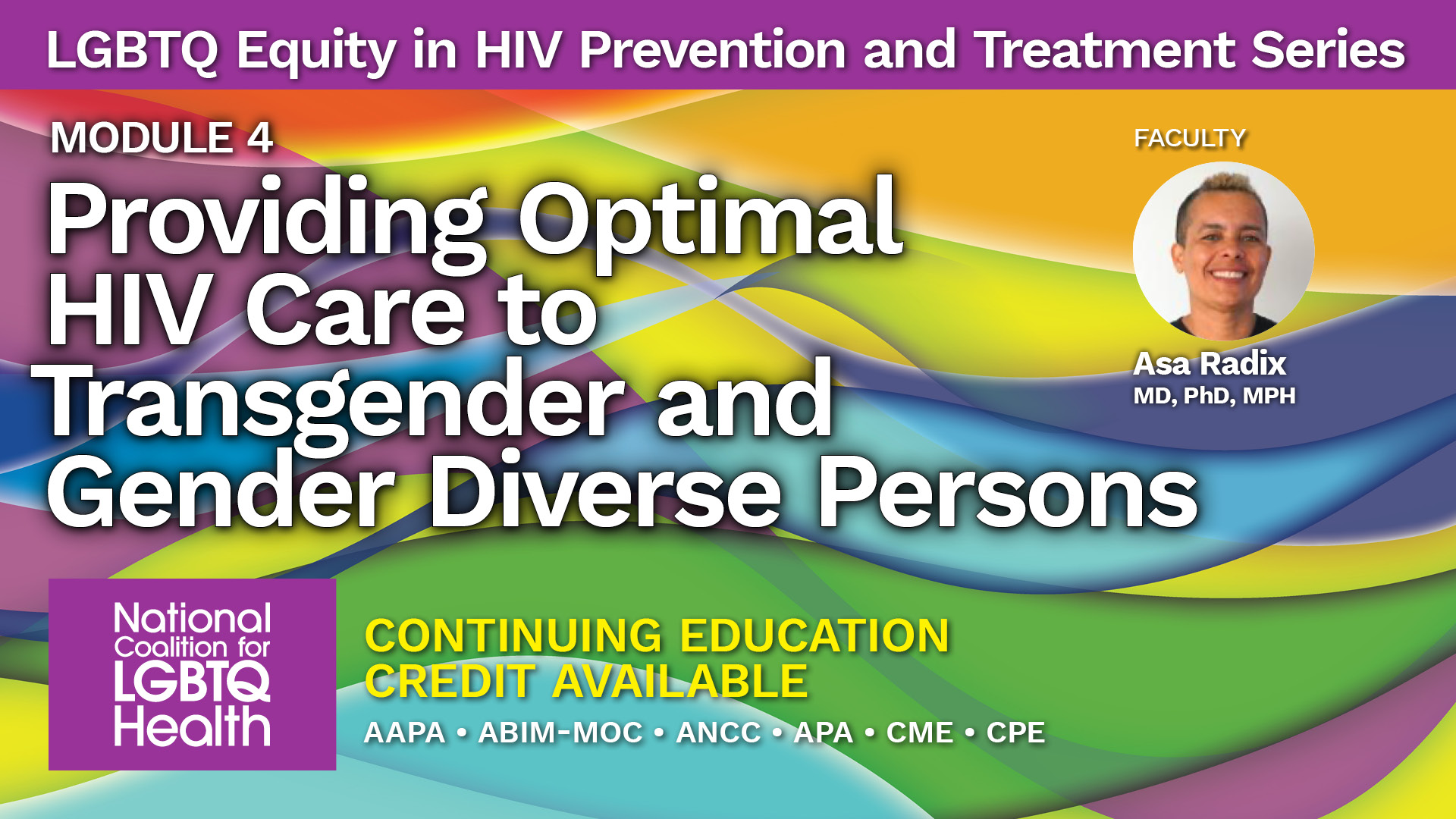
Providing Optimal HIV Care to Transgender and Gender Diverse Persons
August 8, 2025Join Asa Radix, MD, PhD, MPH, as they explore best practices in delivering gender-affirming, patient-centered HIV prevention and treatment. Additionally, Dr. Radix will also provide critical insights into reducing barriers to care, integrating inclusive clinical practices, and addressing the unique health needs of transgender and gender diverse communities across the HIV care continuum.

